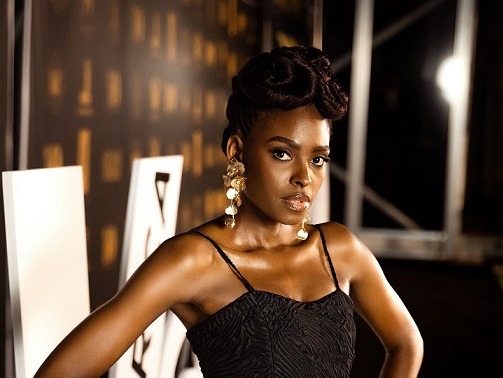Fix GH fashion industry structure to go global —Victoria Michaels
ALTHOUGH Ghana’s fashion industry is loaded with creativity and a new wave of confident and young talents, industry insiders say there’s still a long way to go before it can truly compete on the global stage.
They say despite the growing visibility, the fashion sector in Ghana is facing serious roadblocks, such as limited infrastructure, lack of funding, weak policy support and overreliance on foreign trends, stifling its progress.
International model and fashion advocate Victoria Michaels is one of the voices calling for urgent change.
In an exclusive interview with the Daily Graphic recently, she held that while Ghanaian designers and creatives have the drive and talent, the environment in which they work was not strong enough to push them forward.
“Ghana’s fashion industry has made tremendous strides, and there’s undeniable creativity and cultural richness here. However, while we are ready in spirit and talent, we still face structural and institutional challenges that hold us back from full global competitiveness.
“Access to funding, limited production infrastructure, inconsistent branding and lack of global exposure are major barriers. “Additionally, our designers need more robust support systems for scaling—from mentorship and export readiness to digital marketing. The talent is there. What’s missing is the ecosystem that can elevate them to the next level,” she stated.
She added that although some initiatives are recognising the creative sector, fashion still does not receive the policy focus it deserves.
“Unfortunately, it’s still underdeveloped. While there are initiatives that acknowledge the creative sector, fashion isn’t always prioritised in policymaking. We need intentional investment, policy frameworks and creative-friendly regulations that support local designers, protect intellectual property and create export pathways.”
Touching on how Western beauty standards continue to influence local fashion, sometimes causing Ghanaian designers to lose touch with authenticity, she said: “There is also a lingering influence of Western aesthetics, often due to the desire for international validation. But I believe we’re at a turning point where originality, heritage and storytelling are becoming central to how we define Ghanaian fashion. Like I always say, we are not where we want to be.”
When asked about African representation in international fashion spaces, Ms Michaels admitted that African models still face tokenism, where they are included in campaigns and shows only to tick diversity boxes. (Read There’s too much exploitation in GH modelling industry: –Victoria Michaels, Victoria Michaels represents Africa at Austrian World Summit)
“There has been progress, yes, but tokenism hasn’t disappeared. Often, African models are brought in to tick a diversity box rather than being truly embraced for their individuality and talent. Real inclusion means having African faces both in front of the camera and behind the scenes in decision-making roles.”
She believes media and fashion houses must do more to reflect the true diversity and richness of African beauty and culture.
“We need to challenge and expand what is considered ‘beautiful.’ That means spotlighting different skin tones, body types, ages and stories. Media and brands should actively collaborate with local creatives and culture-bearers to reflect the full spectrum of Ghanaian beauty—not just imported ideals.”

